Why is sexual violence being left out of the election?
Content Warning: This story discusses sexual violence and the justice system
While crime has been a major topic this election season, issues relating to sexual violence have been largely invisible. In response to this lack of dialogue, Dear Em surveyed political parties regarding their sexual violence policies relating to consent law reform and education and how the justice system handles sexual violence.
Labour, National, and Green have all provided responses, but National refused to commit to any changes. The Opportunities Party indicated that they did not have the capacity to respond to the survey, and Act, New Zealand First, and Te Pāti Māori have yet to even acknowledge the survey.
“Over the last term of government, we have seen young people championing change, with youth-led protests in response to high-profile sexual violence cases, a campaign for consent law reform, and calls for improved consent education. We would expect the next government to deliver on these common-sense reforms,” says Imogen Stone, Youth Development Worker at Dear Em.
“This campaign for consent law reform isn’t anywhere near a new one; a lot of the mahi had been done by so many sexual violence activists and people within the sector even before I was born. The silence of our political leadership is disappointing to be honest because issues such as the age of consent should have been appropriately addressed by political parties’ years and years ago. To not speak on issues such as consent law reform is failing our rangatahi who are the very future of this country, and that is nowhere near acceptable.” Layba Zubair, Embassador and consent law reform advocate says.
Labour and the Greens both responded that consent law reform is a “high priority” they would work on with urgency if elected. National were unable to show clear support, instead stating, “It is a priority for National to restore real consequences for violent and sexual crime. We will consider the appropriateness of consent laws, if elected.”
In the survey, parties were asked “What age of consent to sexual activity does your party support including in the Crimes Act?” Labour, National and Greens all agreed that our age of consent should be 16 years of age, which is what it is often assumed to be already, even though sexual connection is not illegal until the person is under 12 years of age*, which creates difficulties getting justice for victims of sexual abuse and rape. However, while National support the age of consent being 16, they have only stated that they would “consider the appropriateness of consent laws.
“It’s confusing – National support an age of consent which is currently not protected by legislation, yet they can’t commit to changing the loopholes in our Crimes Act, ” says Imogen, who conducted the survey of parties on Dear Em’s behalf.
Layba has long been an advocate for consent law reform, having presented her 12,000-signature strong petition to Parliament in September 2022. She further spoke on the matter saying “for a party such as National which talks a lot about crime and youth, consent law reform needs to be more than a maybe, it needs to be set in stone that these reforms are on the table. In my eyes, political parties have been “considering” consent law reform for the past decade and change is overdue. Aotearoa New Zealand has an epidemic of sexual violence, and it needs to be treated as what it is - an urgent matter.”
“It’s honestly just confusing to me that National hasn’t wholeheartedly committed to consent law reform already, especially considering that at the handover of the petition in September last year we had strong indications from Chris Penk that National did support our campaign. This issue has been on the agenda for a long time now, and National have had plenty of time to consider policies and make a commitment,” says Imogen, who has been working with Layba at Dear Em on the consent law reform campaign.
It is easy to see how the lack of attention given to issues that are important to young people leave rangatahi feeling disempowered this election season. Here are just a few ways we as young people can continue to uplift our voices this election:
Check out the full results of our survey:
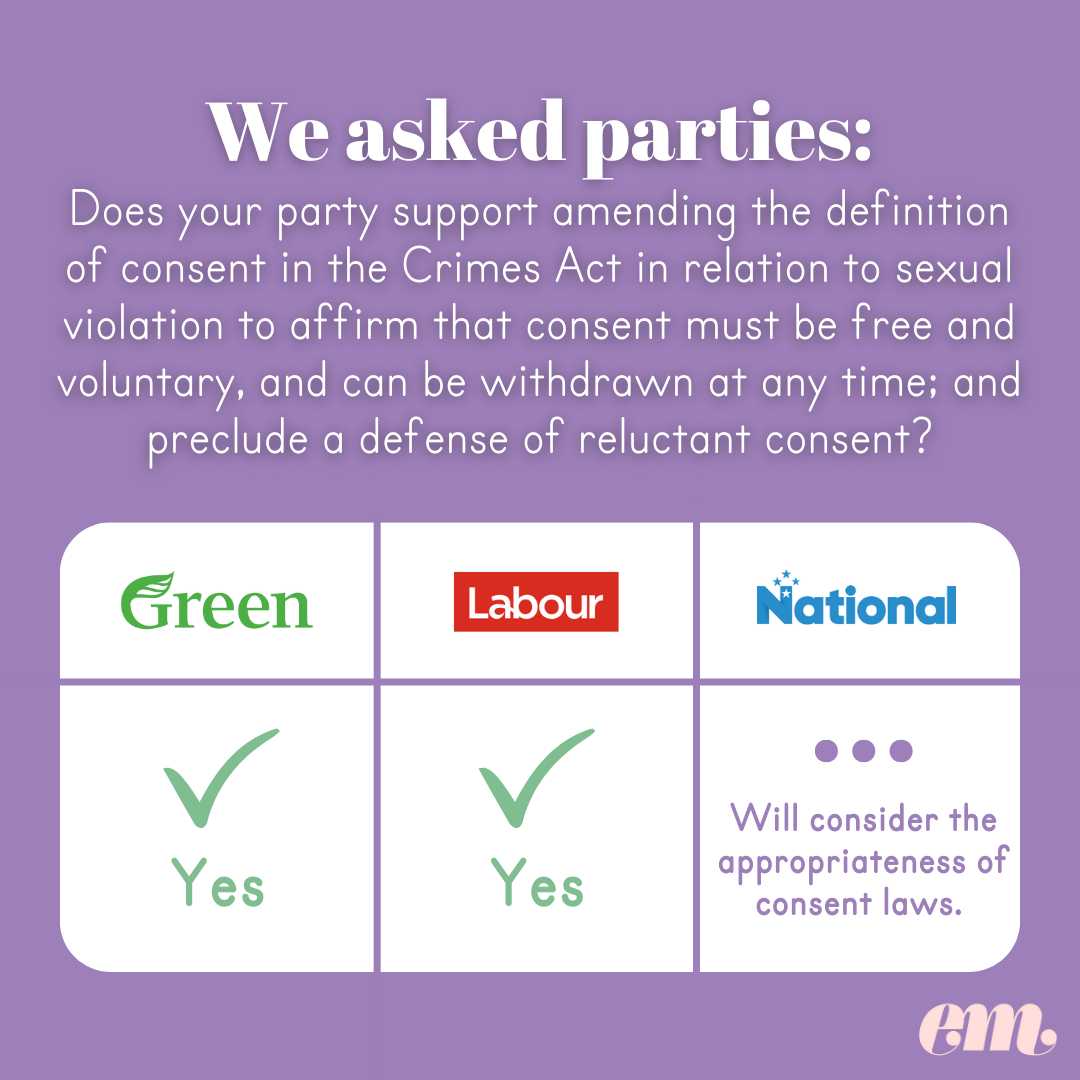
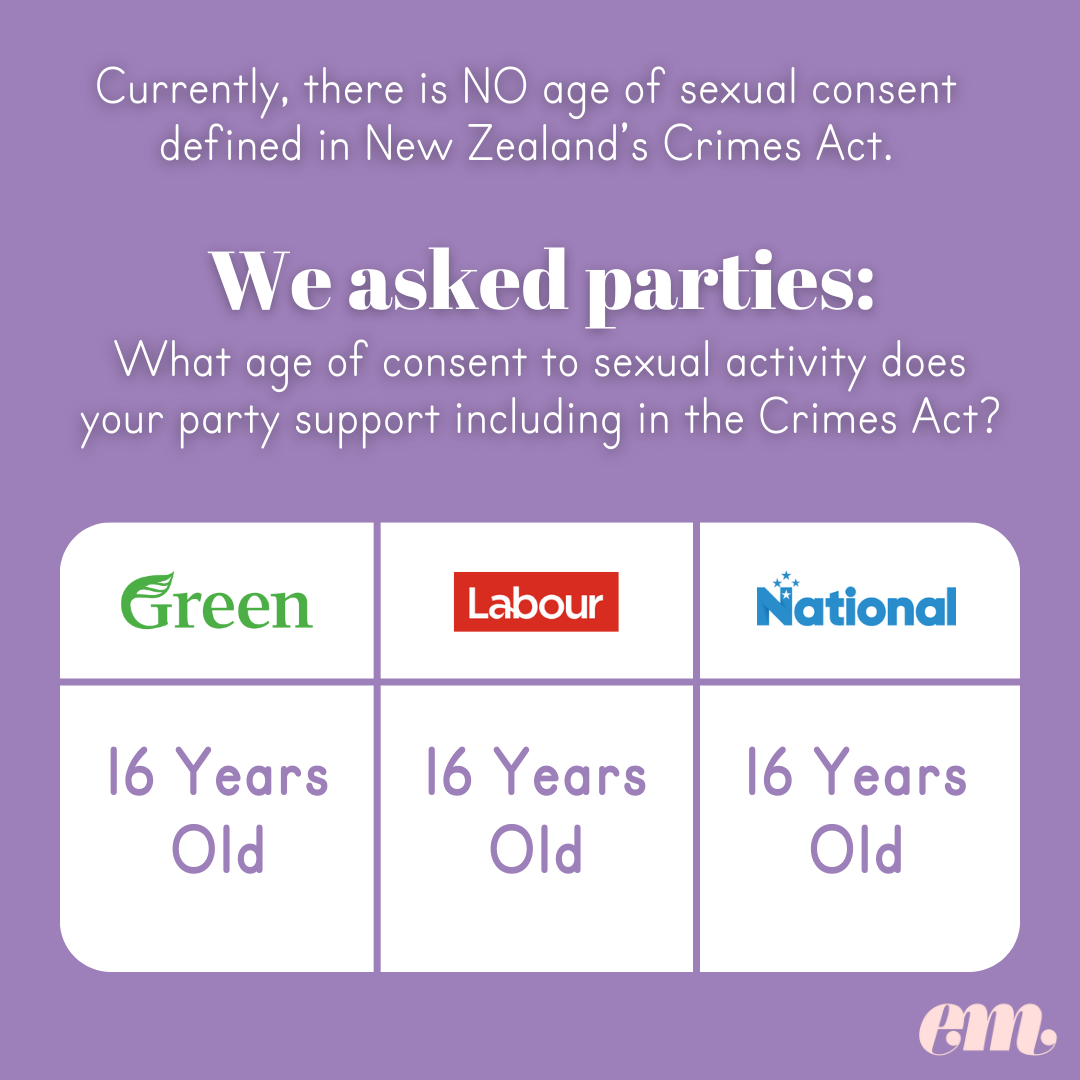
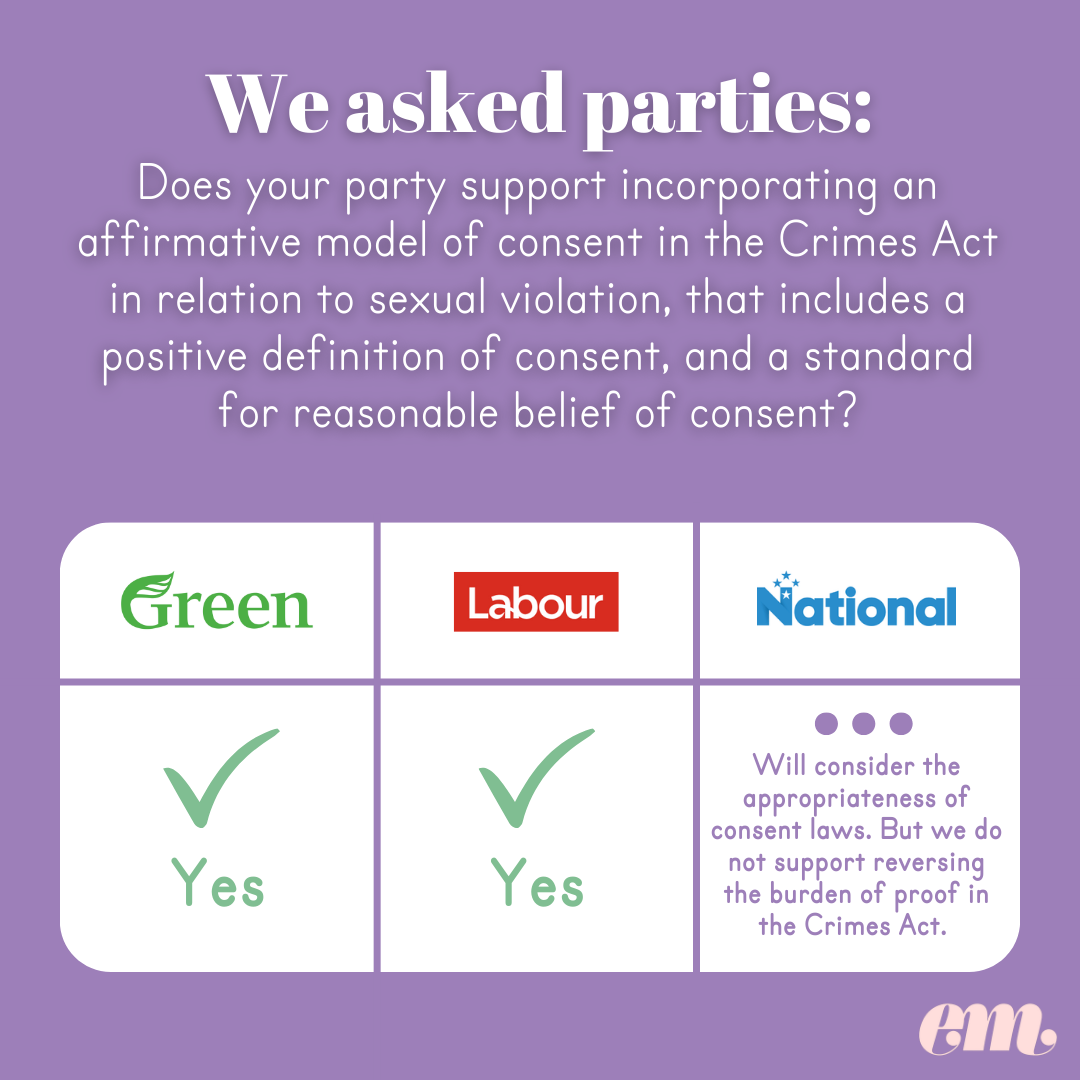
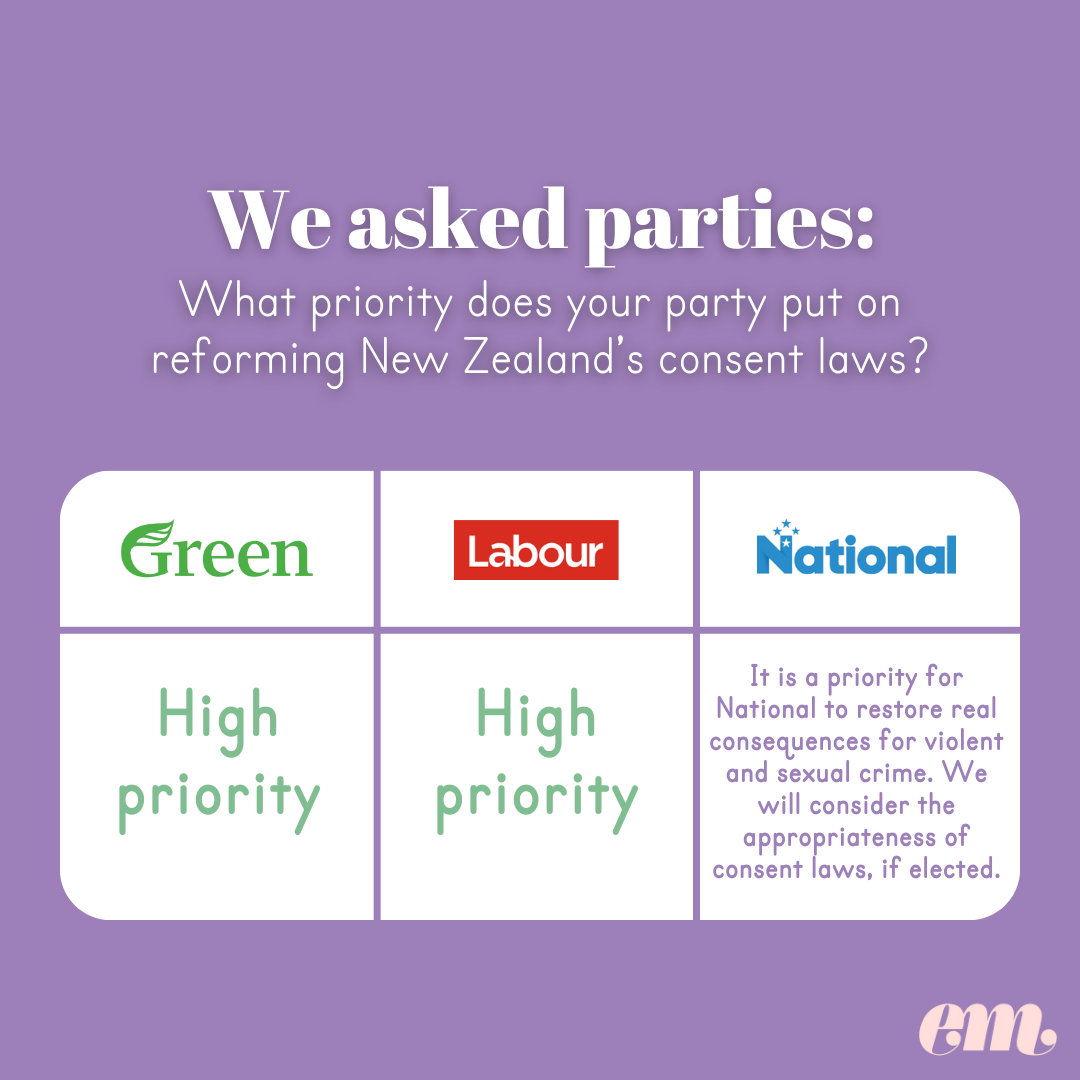
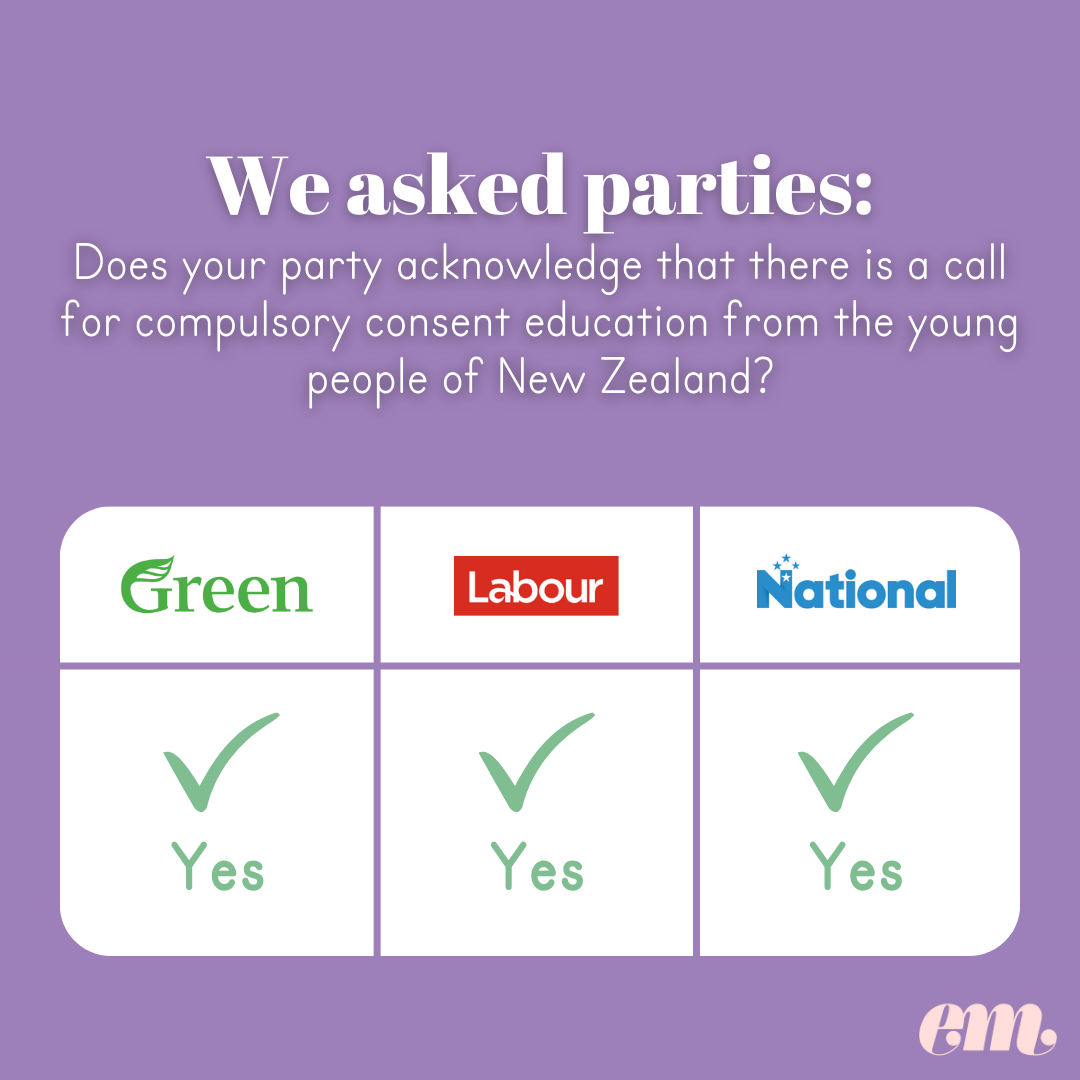
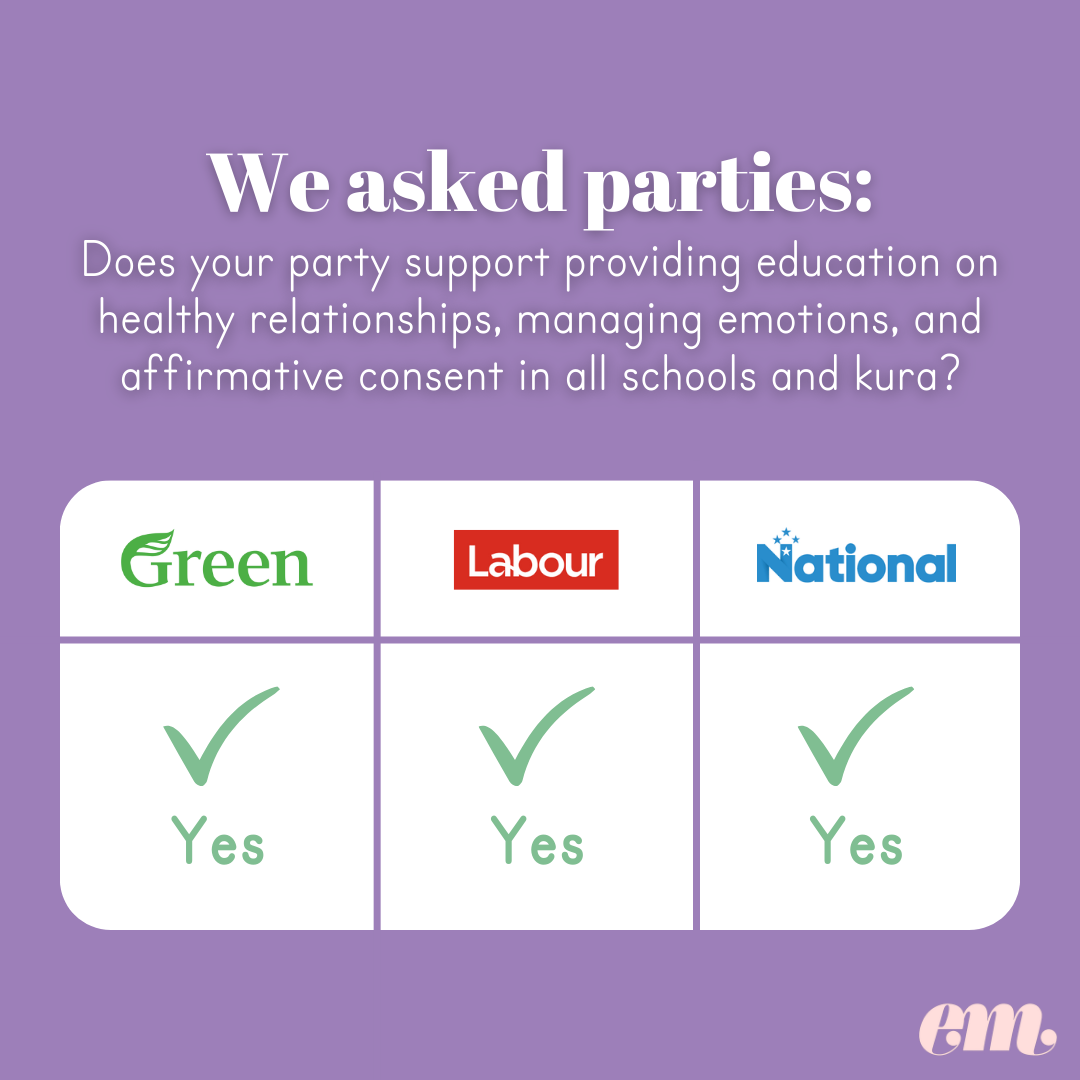
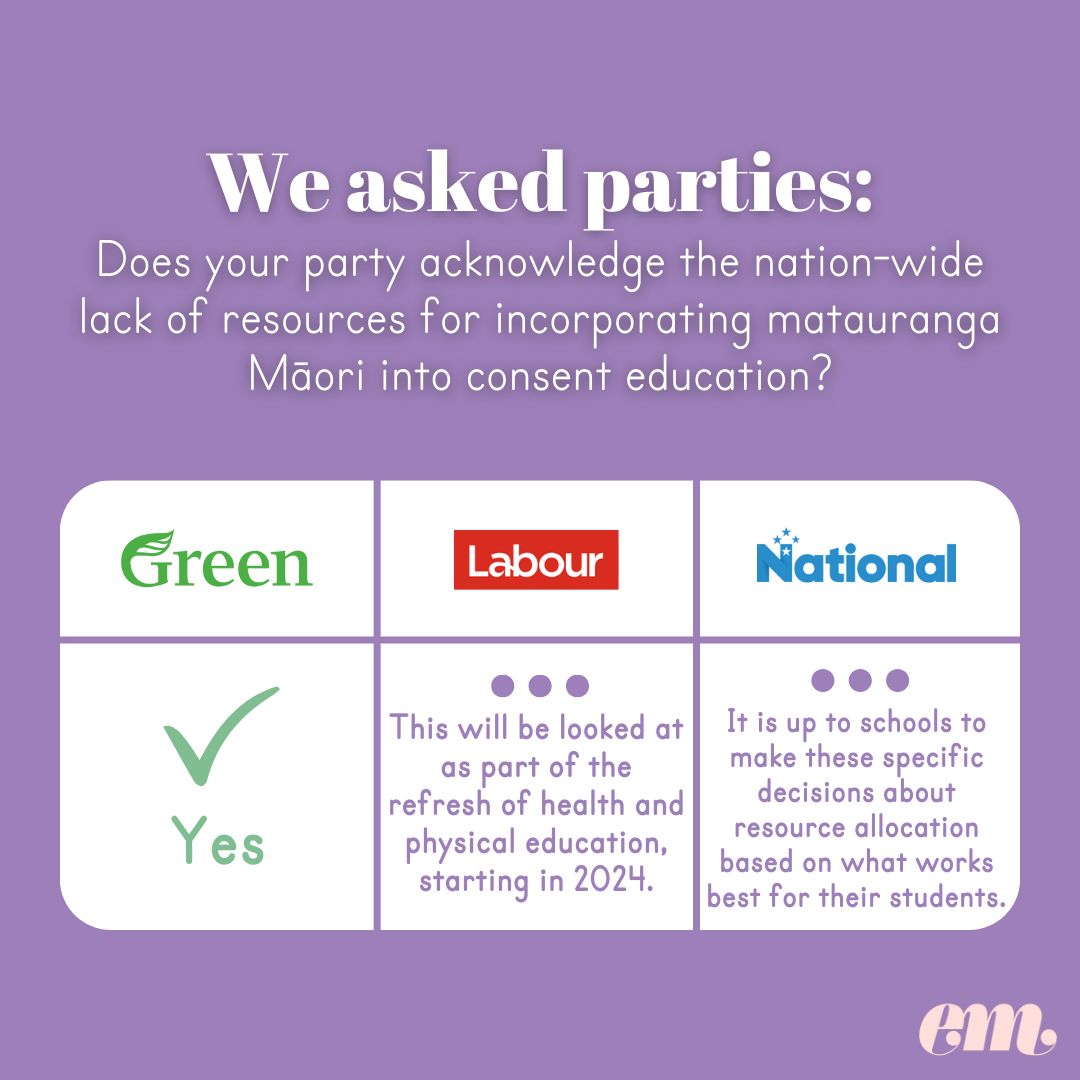
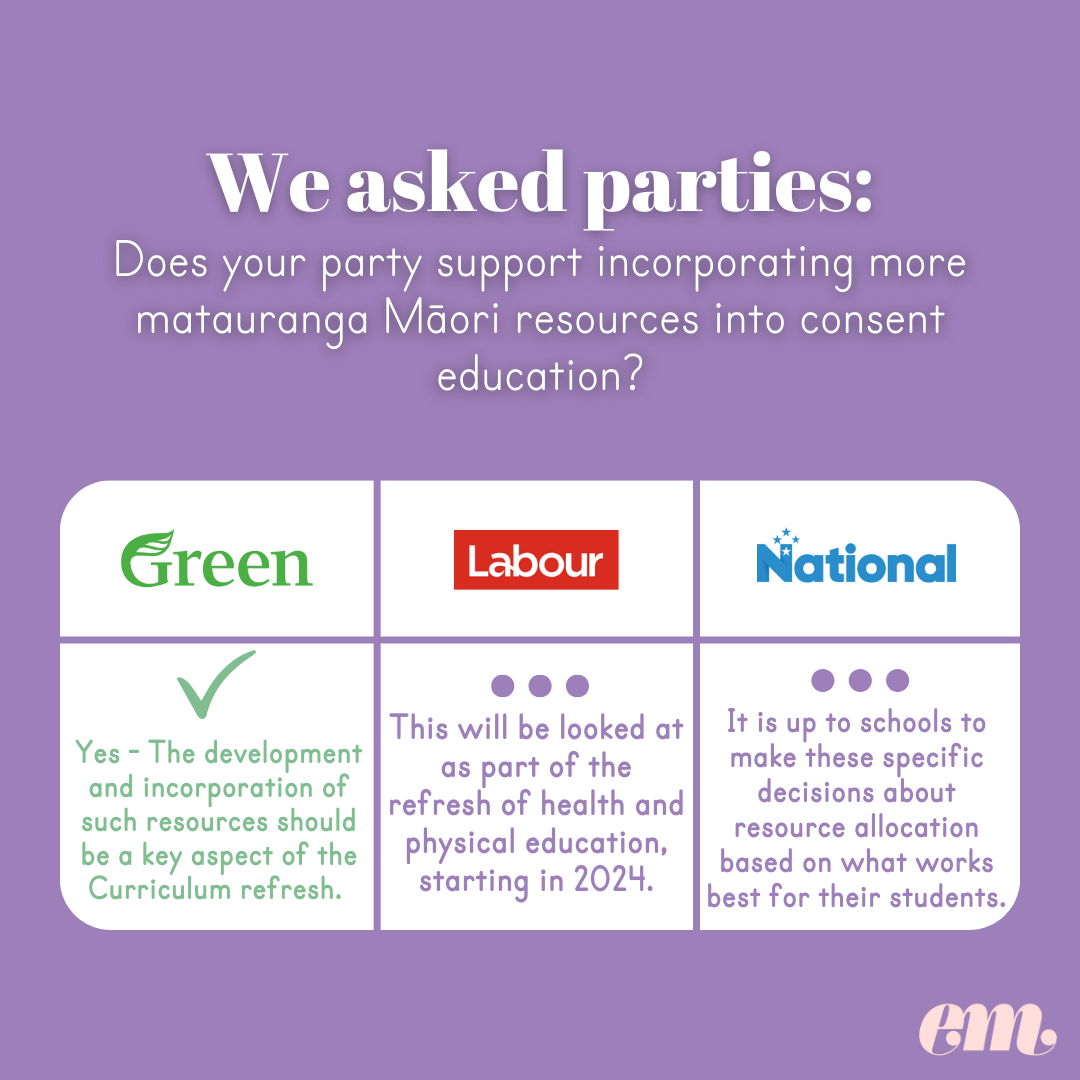
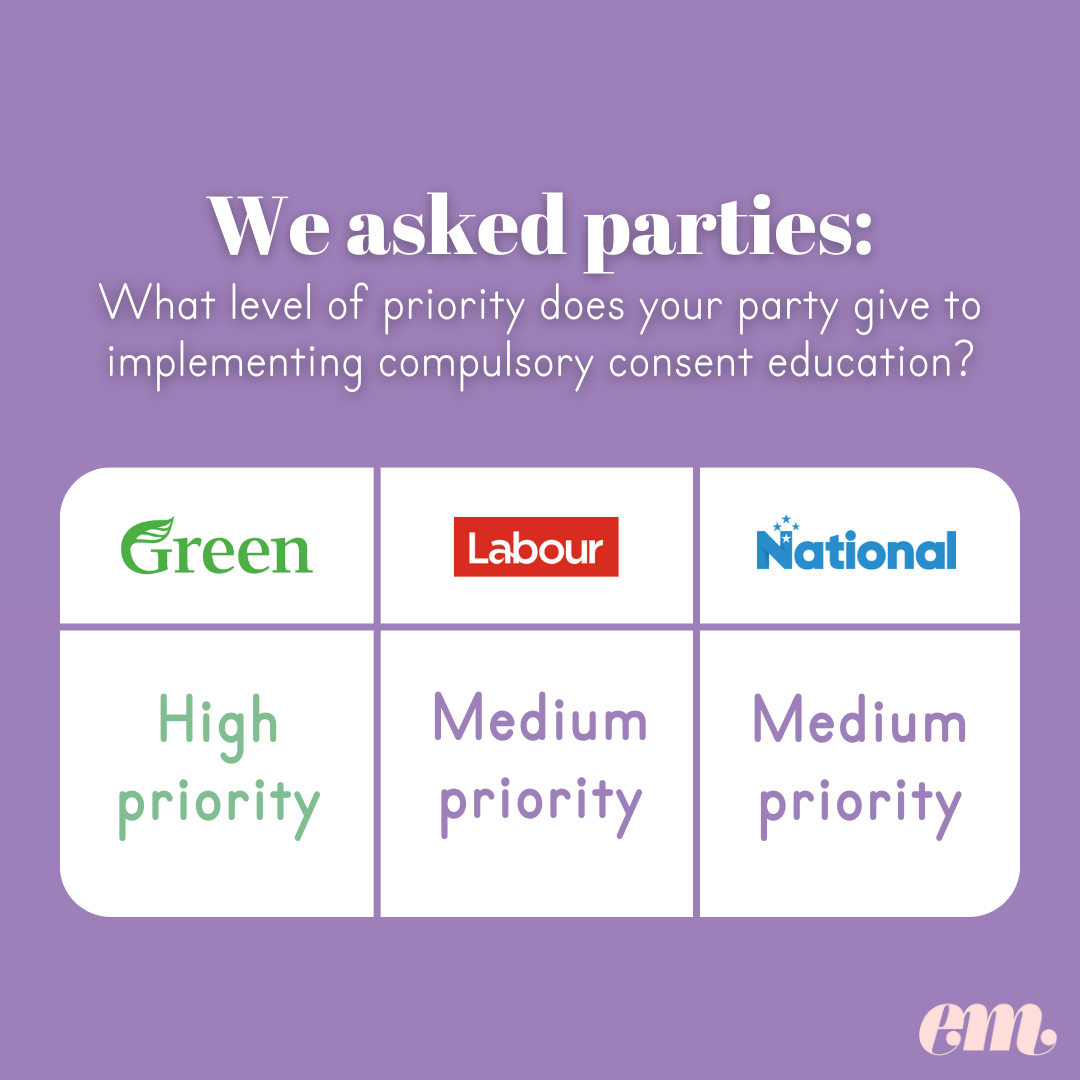
**Under Section 128 of the Crimes Act, there is currently no definition given for an age of sexual consent. Rather, Section 127 states “There is no presumption of law that a person is incapable of sexual connection because of his or her age.” The only section where it is stated that a person cannot give consent because of their age is in Section 132 of the Crimes Act “Sexual conduct with child under 12”, where it states “It is not a defence to a charge under this section that the child consented.” meaning that children under 12 cannot give consent. However, this is only applicable if the charge is made under section 132; charges under other sections can still accept an argument that a person of any age can give consent. As it currently stands, the penalty for Section 132 is less than the penalty for Section 128, which is an issue on Labour’s reform agenda.






